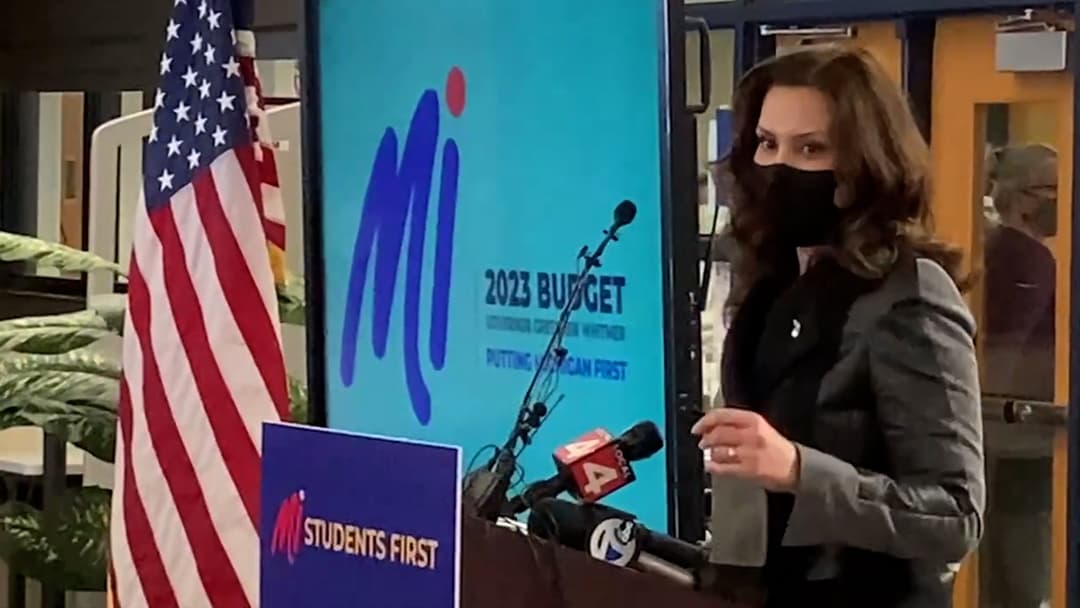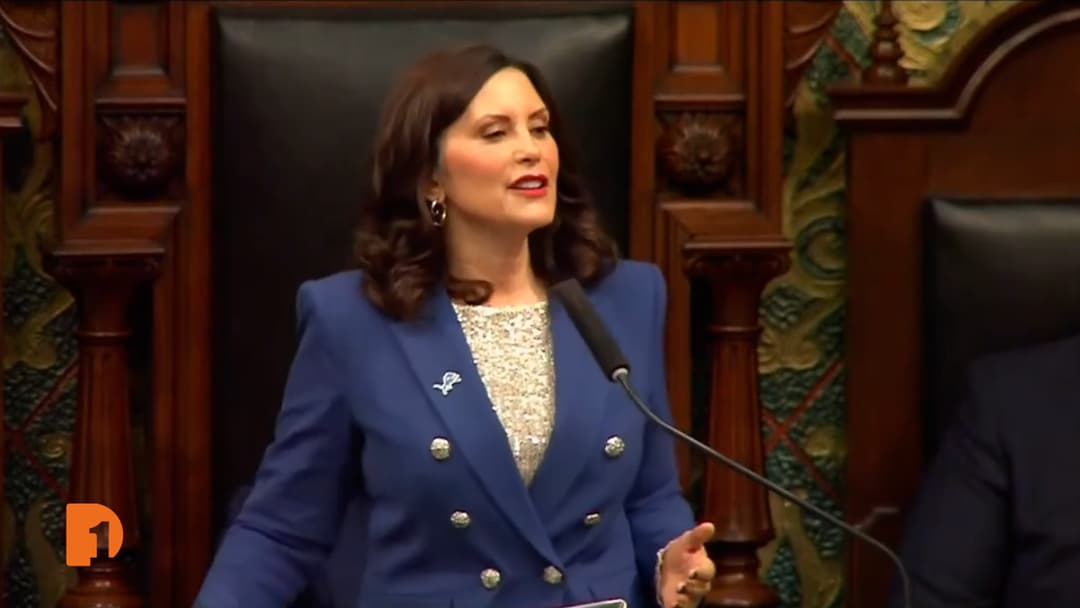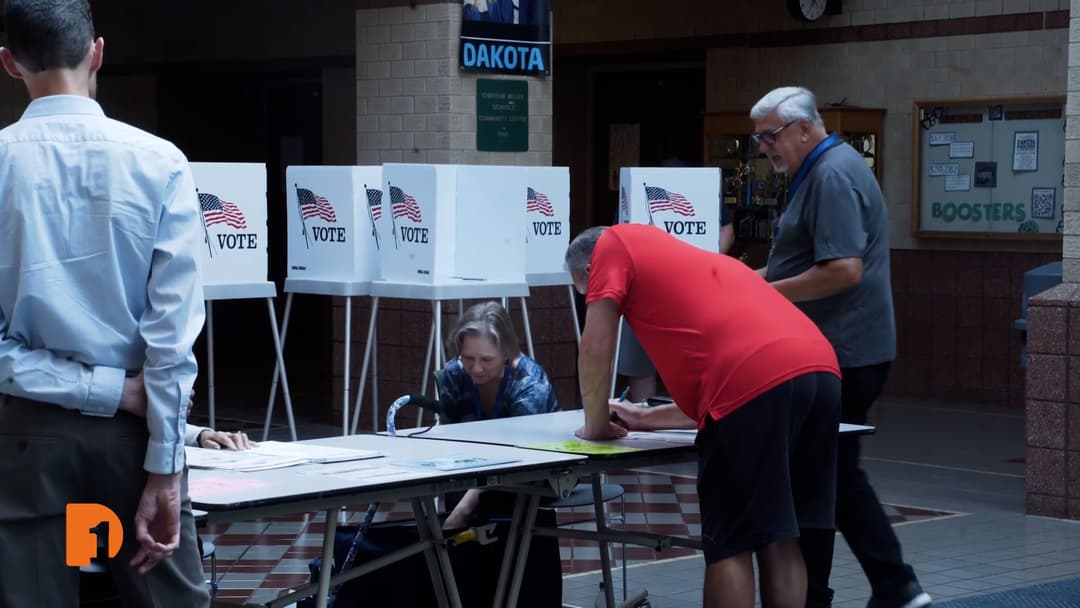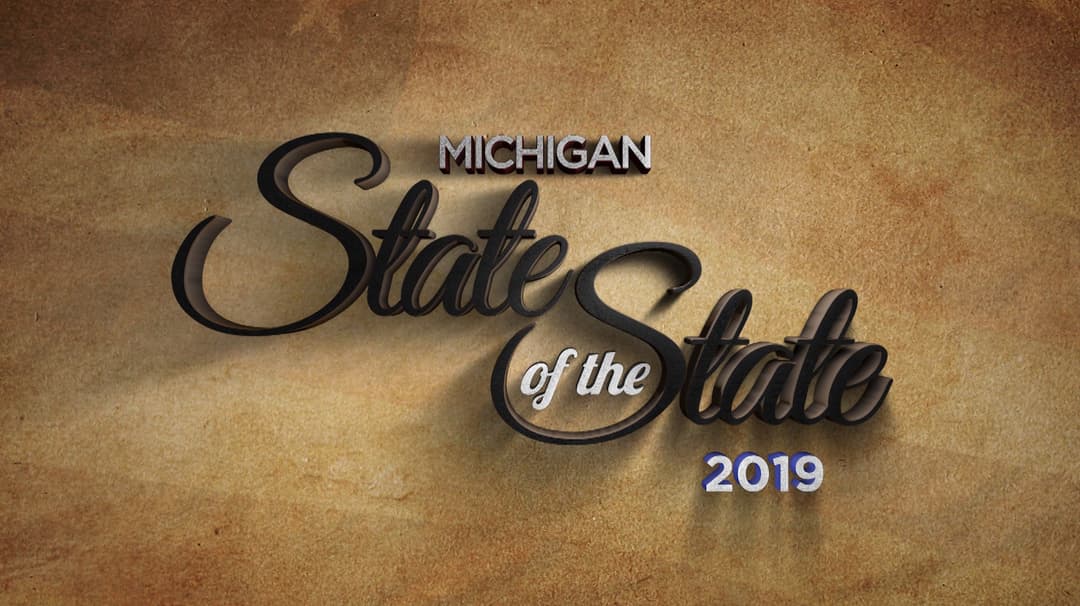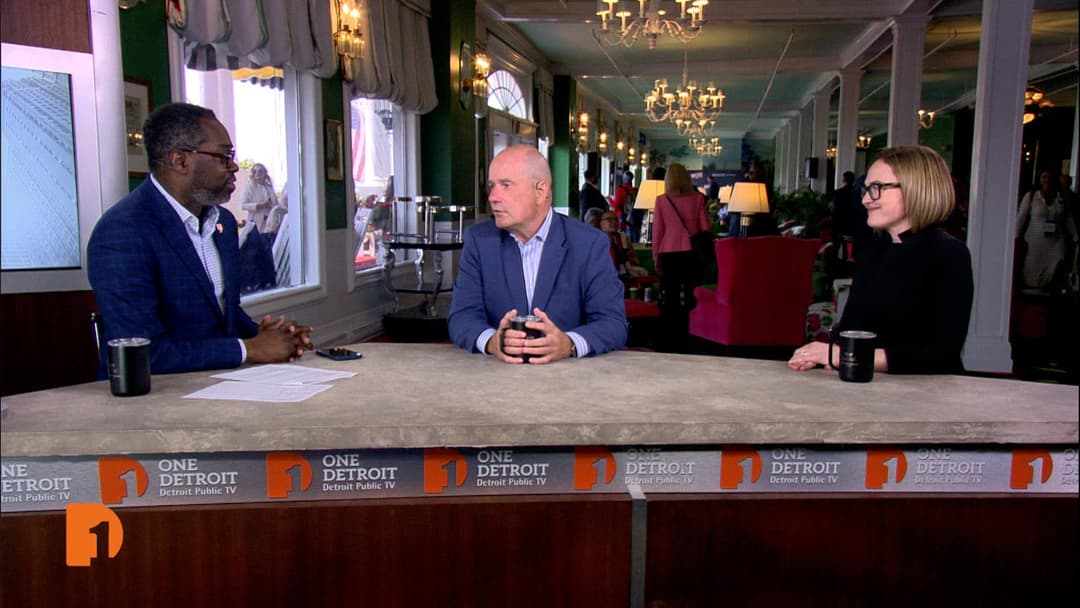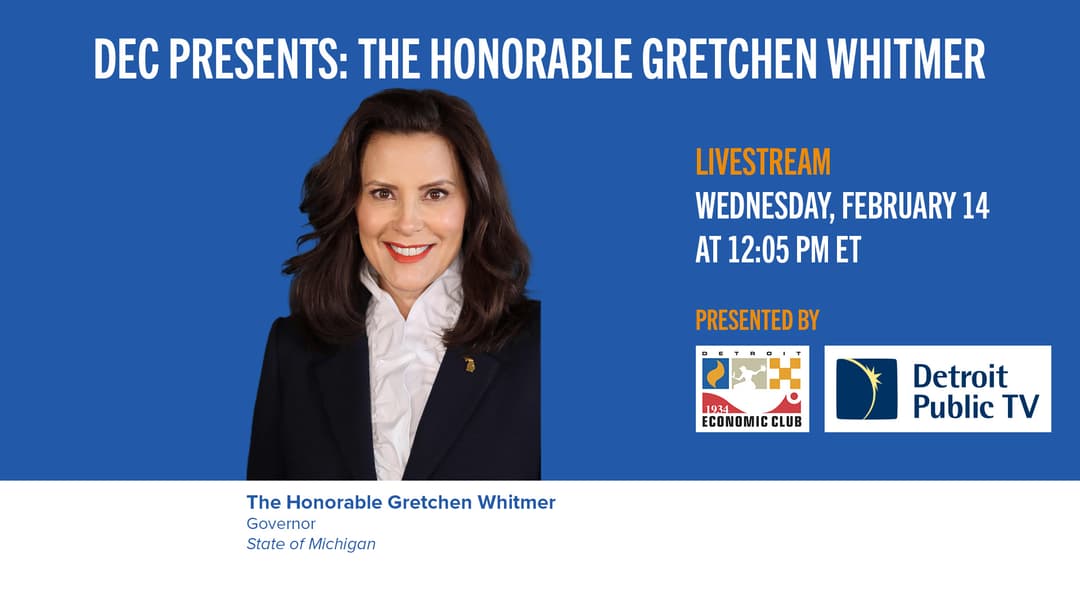Gov. Gretchen Whitmer targets tax relief, gun reform, education in 2023 State of the State address
Jan 26, 2023
Appearing before Michigan House representatives and senators in the Michigan House chambers on Jan. 25, Gov. Gretchen Whitmer delivered her 5th State of the State address as governor of Michigan, and her first of her second four-year term that has seen a shift to Democratic control across all three legislative bodies.
During her address, the governor spoke optimistically about her goals for Michigan, including tax relief for low-income families and senior pensions, gun reform, expanding LGBTQ rights and protections, universal pre-k for all four-year-olds and investments in K-12 tutoring and afterschool programs. She hopes to enact some turnkey legislation right away, while others may be more ambitious, long-term goals the state may only accomplish with bipartisan support.
RELATED: Watch Gov. Whitmer’s State of the State address here
One Detroit contributors Stephen Henderson, host of “American Black Journal,” and Nolan Finley, of the Detroit News, got together to discuss Gov. Whitmer’s goals for the state moving forward and whether she can get them accomplished. Plus, they posit whether voters might see Gov. Whitmer make a bid for national office during the 2024 election cycle.
Full Transcript:
Stephen Henderson, @SHDDetroit: All right. So, Nolan, we saw Governor Gretchen Whitmer give her fifth State of the State address. It is the first State of the State address of her second term and the first address to a chamber that is controlled on both sides, Senate and House, by Democrats. I thought it was a really focused speech. She talked about some really concrete things she wants to get done right away. I also thought it was an ambitious speech. She talked about some things that, hey, maybe there stretch goals for us here in the State. But look, this is playing to my sentiments, right? This governor and this legislature. I wonder how it struck your ears.
Nolan Finley, @NolanFinleyDN: Well, what it struck me as a governor who recognizes the opportunity here. She’s got complete control of the legislature. It’s a slim majority. But if she could hold it together, she could get a lot of things done. A lot of difficult things done. Things that you wouldn’t have imagined happening had the chamber not changed to a Democratic majority. Also, an opportunity to position herself as a governor who can do hard things and can get things done, which is very useful if a governor had ambitions for 2024 and the presidential race.
Stephen Henderson: People keep bringing that up about 2024. And whether Whitmer would be in it. I don’t see her as a great, credible candidate there. But before we get to that, I do want to talk about one part of her speech in particular, and that’s this idea of pre-K for all. Which, I think, I mean, we have been expanding pre-K for a while here in Michigan. We’ve been talking about doing better in terms of educational outcomes. Everybody seems to agree that pre-K gives kids a leg up that lots of them need. I think this is the most ambitious part of the early agenda, at least that the governor has in getting the legislature. And it is something that I think you’re going to see a lot of Republicans at least sit-down and think about and open their ears to.
Nolan Finley: Yeah and I agree. I think it’s an important piece. I would have preferred to see it as part of an overall strategic education improvement plan, something we lack in this state, and a blueprint, a plan that everybody understands and everybody participates in that goes from K-12 and includes school choice. It includes tutoring, intensive tutoring, and it breaks down all these barriers structural, cultural, and whatever that has kept us at the bottom of education performance in a state that should not be at the bottom. We fancy ourselves a sort of advanced state, a prosperous state, and here we are, lurking around with some of the poorest states in the nation in terms of our educational achievement.
Her educate… Her economic plan, Steve. She’s calling for an increase in the earned income tax credit for the working poor. I think that’s also a place where she’s going to find consensus with Republicans. She’s proposing 30% EITC credit. Republicans are already on the table with 20%. That seems like a very narrow gap to close. I think where she’s going to run into pushback from the public too is on this income tax relief for giving public employees from pensions, from state income taxes, but not everybody else’s pension. I think the Republicans have a much better plan to provide $40,000 in exemptions on retirement income for an individual and 80,000 for couples. That takes care of everybody. But this insistence on providing some extra benefit to public employee pensioners I think is unfair. And it’s not going to sit well with the public.
Stephen Henderson: Yeah, I don’t know how well it’ll sit with the public. I mean, this used to be a state where we really believed in that kind of benefit for people who worked for the government. And part of the reason was that you know, we asked a lot of them. We asked a lot of sacrifice of them when times get tough. These were concessions that were crafted around the idea that these are people who are not going to make the kind of money that people do in the public in the private sector.
Nolan Finley: But they do now.
Stephen Henderson: I don’t know if that’s all true anymore. Right. I mean, I’m not sure that everybody feels that way. I don’t object to, on its face, the Republican plan there, which is dealing with everybody who’s retired and saying, look, let’s treat them all better, right?
Nolan Finley: Equal.
Stephen Henderson: But the idea of them being equal, they aren’t necessarily equal. And I think that’s where…
Nolan Finley: They shouldn’t be. We shouldn’t have two classes of taxpayers. And I think that’s where there’s going to be a sticking point. You could take care of this by adopting that Republican plan and public pensioners benefit, private pension benefit and people without a pension, which is going to be most of the population,.
Stephen Henderson: As most of us now, right?
Nolan Finley: They benefit.
Stephen Henderson: But quickly, I want to talk about this ambition. Do you really believe that this is somebody who’s thinking about the national office?
Nolan Finley: Yeah. I mean, she sounded like it. She didn’t sound like somebody who is ready to quietly walk off the stage in two years. And again, this presents her with an amazing opportunity to position herself as a get-it-done governor. And that’s made much easier when there’s nobody standing in your way and keeping you from getting it done. So like Rick Snyder in his first term. Look at all he accomplished with a Republican majority in the legislature…
Stephen Henderson: Well everyone thought he might be… everyone thought he might have national aspirations and possibility. And well, he did.
Nolan Finley: He ran for a little bit, you know. So and I would expect.
Stephen Henderson: A lot to see.
Nolan Finley: Okay, Steve. Next up, the budget where reality will meet these.
Stephen Henderson: How are we going to pay for all those?
Nolan Finley: Yeah, right. So good talking with you.
Stephen Henderson: All right.
Stay Connected:
Subscribe to One Detroit’s YouTube Channel & Don’t miss One Detroit Mondays and Thursdays at 7:30 p.m. on Detroit PBS, WTVS-Channel 56.
Catch the daily conversations on our website, Facebook, Twitter @DPTVOneDetroit, and Instagram @One.Detroit
View Past Episodes >
Watch One Detroit every Monday and Thursday at 7:30 p.m. ET on Detroit Public TV on Detroit Public TV, WTVS-Channel 56.
Stay Connected
Subscribe to One Detroit’s YouTube Channel and don’t miss One Detroit on Thursdays at 7:30 p.m. and Sundays at 9 a.m. on Detroit PBS, WTVS-Channel 56.
Catch the daily conversations on our website, Facebook, Twitter @OneDetroit_PBS, and Instagram @One.Detroit
Related Posts
Leave a Reply
Your email address will not be published. Required fields are marked*





